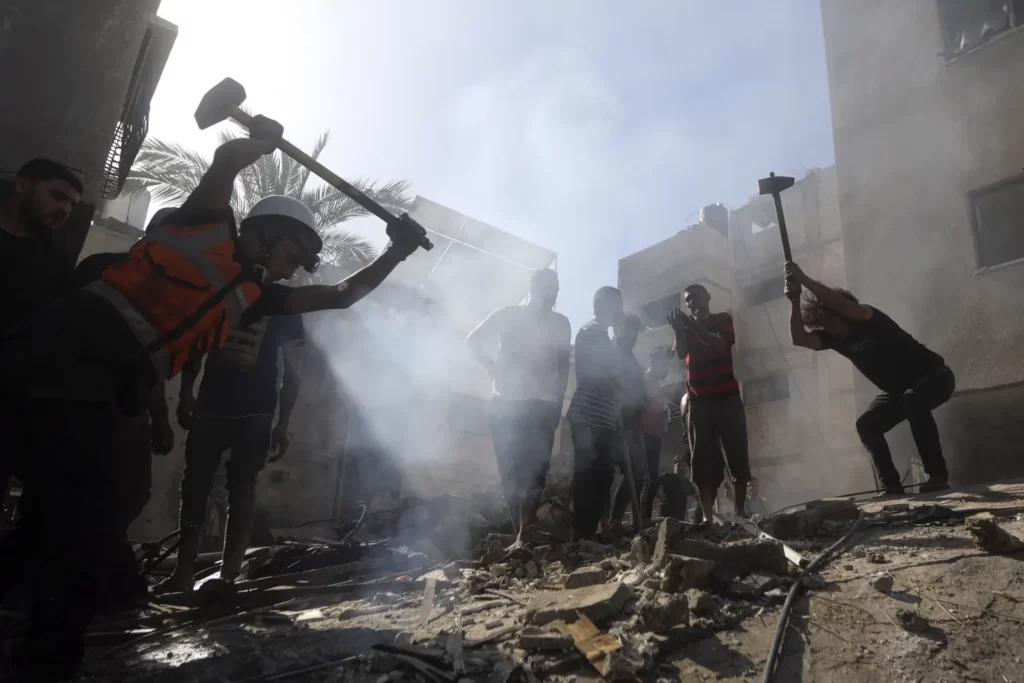
The ongoing conflict in Gaza has reached a critical juncture, prompting UN agency leaders to issue a plea for a humanitarian ceasefire. This call for a cessation of hostilities comes after nearly a month of intense fighting, during which Palestinian health authorities have reported a death toll from Israeli strikes exceeding 10,000. However, it’s important to note that the accuracy of this figure is disputed, as it is reported by Hamas, a party with a vested interest in shaping the narrative of the conflict.
Israel has resisted mounting international pressure for a ceasefire, maintaining that the release of hostages taken by Hamas militants during their incursion into southern Israel on October 7 must precede any such truce. In contrast, Hamas has made it clear that they will not release the hostages while Gaza remains under assault.
On the ground, the situation is dire, with overwhelmed hospitals and critical shortages of essential supplies such as food and clean water, resulting in a growing humanitarian crisis. UN chiefs, including the UN High Commissioner for Human Rights Volker Turk, World Health Organisation head Tedros Adhanom Ghebreyesus, and UN aid chief Martin Griffiths, have emphasized the urgent need for a humanitarian ceasefire, highlighting that an entire population is besieged and under attack, deprived of access to the essentials for survival.
US Secretary of State Antony Blinken is actively engaged in regional diplomacy, working to mitigate the risks of further escalation, facilitate the delivery of essential aid to Gaza, and explore long-term solutions for both Israelis and Palestinians. The US government’s approach has been to support temporary pauses in the fighting to allow for the delivery of humanitarian aid, as they are concerned that a broader ceasefire might be exploited by Hamas militants.
The Israeli military has intensified its operations on the ground, particularly in isolating areas in the northern Gaza Strip where Hamas fighters are believed to be hiding in underground tunnels and bunkers. In response, Hamas claims to have inflicted significant losses on Israeli military vehicles and troops, underscoring the intensity and complexity of the conflict.
The ongoing violence has resulted in heavy civilian casualties, with reports of Israeli airstrikes hitting hospitals and other critical civilian infrastructure. The International Committee of the Red Cross (ICRC) has been working to evacuate patients from Gaza for necessary medical treatment, reflecting the dire humanitarian situation.
The situation in Gaza and the broader region remains highly complex and volatile, demanding ongoing international attention and concerted efforts to seek a lasting and peaceful resolution. The challenges and obstacles in reaching a resolution are evident, and a comprehensive approach involving multiple stakeholders is imperative to address this longstanding crisis.
